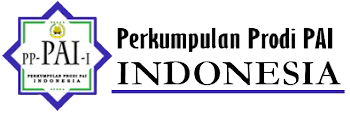PENGARUH PENERAPAN TEKNIK MEMBACA SUPER GAYA ACCELERATED LEARNING TERHADAP HASIL BELAJAR SISWA PADA MATA PELAJARAN SEJARAH KEBUDAYAAN ISLAM DI MAN 2 PALEMBANG
DOI:
https://doi.org/10.19109/pairf.v3i1.5151Keywords:
Super Reading, Learning OutcomesAbstract
Reading activity is one of the skills that must be possessed in learning activities. How to read reading material can be different according to the purpose of reading it. This super reading style acccelerated learning technique is a speed reading technique to improve students' reading skills in finding main ideas of reading and reading comprehension quickly, so it can affect student learning outcomes. The purpose of this study was to obtain empirical data on the influence of the application of super reading techniques style accelerated learning to student learning outcomes in the subjects of Islamic Cultural History at MAN 2 Palembang.
This type of research used in this study is an experimental study in the form of pretest-posttest control group design. Then this research data collection technique uses observation, documentation and test techniques. The data analysis technique used is the t-test gain score and gain test (N-gain). The samples of this study were 32 experimental class students (class XI IIS 2) and 31 control class students (class XI IIS 1) using techniques nonprobability sampling.
Based on the results of the t-test gain score, the calculated t value is greater than t table, that is t count = 2.00 and t table = 1.99 with a significant level of 5%, then the results of the gain test (N-gain) are obtained at the experimental class was 0.39 in the medium category and the control class was 0.22 in the low category. So the result of the t-test gain score states that the alternative hypothesis is accepted and the null hypothesis is rejected.












.png)


1.png)



